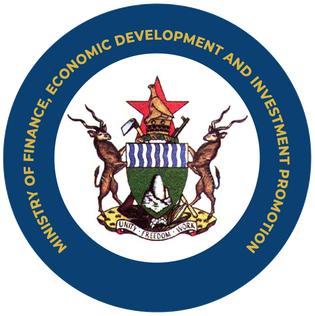
BY nurturing entrepreneurship along food systems and supply chains, African mass food markets also called territorial markets, are more inclusive than any other market in the world.
They are dynamic knowledge platforms for every actor to write his or her own curriculum vitae (CV).
Irrespective of levels of education, farmers, food vendors, transporters, sales agents and many other actors are able to use mass markets in crafting their own socio-economic CVs.
The more an individual farmer or trader participates in the mass market, the more his/her CV is enhanced.
It is the same way these markets determine whether farming is really a business or a hobby.
Instead of directing most resources to primary production, African policymakers should invest in understanding mass markets as sources of knowledge for building resilient African agriculture-driven economies.
These markets support more than 90% of food surpluses which would otherwise go to waste due to absence of a market.
Food loss and waste would be worse if there were no mass markets because processing companies and supermarkets only absorb less than 25% of food produced by African farmers. Where does the 75% go and what happens to food that is not sold?
- Where are Zim universities getting it wrong?
- African mass food markets decolonising entrepreneurship
- Trading in raw commodities generates more knowledge than processed food
- How African mass markets enable participants to write their own CVs
Keep Reading
Roots of African mass/territorial markets
Many people may not know that African mass/territorial markets have a very long history.
These markets existed before colonialisation and did not start as urban markets but as local markets built through relationships and networks that ensured resilience.
Based on African values like Ubuntu, communities realised that one farmer cannot have everything.
For instance, one farmer can have cattle but lack good seed which is owned by the other farmer who does not have cattle.
In the same community, another farmer has unique knowledge on breeding livestock and domesticating wild animals so that they co-exist with human beings.
Bringing together all this diverse resource base ensured community resilience as a market for diverse knowledge and resources.
The urban version of African mass markets evolved with the migration of Africans from rural to urban areas at the dawn of colonisation.
Upon tasting foreign food in cities, many Africans missed their own food and decided to bring it from rural communities, hence the growth of mass markets in big African cities.
Although retail shops that sell consumer-packaged goods have invaded rural African communities, the fact that local mass markets continue to thrive is a big sign of incredible resilience.
Through providing trading spaces where buyers and farmers convene to trade diverse commodities including knowledge, mass markets are an integral component of community resilience.
It is in these markets where one can see who is practising which kind of entrepreneurship between the farmer and the trader.
As a supplier of products, the farmer’s role can be equivalent to a modern-day manufacturer.
How mass markets nurture and build resilience
Resilience is built through direct interaction between producers and traders.
All farmers are not always in agribusiness but many get into business when they produce surplus for the market.
The most significant way in which the mass market nurtures farmers and all actors is through providing relevant market information and knowledge.
Such knowledge and advice include what to produce, when, for whom, in what quantities and how much is wanted by the market in terms of varieties and grades.
In some cases, the mass market answers research questions that are fluidly shared with farmers who eventually become experts through being corrected by the market.
Several testimonies from farmers convey how their growth was driven by mass market information systems. That is an incredible nurturing process in itself.
As farmers earn income from their farming businesses, they go back to re-invest in communities. For instance, some buy trucks to alleviate community transport challenges.
Others drill boreholes and inspire progressive urbanisation by installing solar electricity at their homesteads.
However, the most fundamental contribution that has remained largely undocumented is how the majority of African farmers have managed to send their children to school using income from the mass markets.
Entire communities benefit in many ways including remittances when children educated through income from mass markets start working in cities and the diaspora to support their home communities.
If farmers were not participating in mass markets, most rural communities would not have reached current levels of sophisticated resilience.
Mass markets as equitable distributors
Being inclusive, mass markets also play the role of equitable food distributors. For instance, without cooling facilities, they handle tonnes of fresh produce and move commodities where they are needed by diverse consumers at the right time.
This has made these markets more relevant in anticipating demand towards matching supply and demand.
They have created more collaborative than competitive communication pathways based on undocumented fluid pathways and relationships.
Distributing food to diverse markets ensures producers get the best returns out of the performance of all the markets unlike where one enterprise like a supermarket dominates a market.
If big mass markets wanted to be monopolists, they could easily become monopolies. But Ubuntu and indigenous commerce ensure they remain distributors.
Giving more meaning to the principle of connectivity
Being at the centre of supply chains, mass markets have power to nurture and build downstream supply chains in farming and also nurture the growth of upstream enterprises like processors.
For instance, mass markets aggregate commodities for processing enterprises.
This is how the principle of connectivity is enhanced for all supply chain actors like processors and vendors in mass markets.
Fluid connectivity ensures farmers do not always have to deal directly with processors.
Increasingly, the mass markets are now anchoring road-side markets and micro, small and medium enterprises that are growing within communities.
There is emerging recognition that markets can no longer just be defined by infrastructure, but by systems that move food to diverse destinations.
As mass markets move food fluidly, a growth pattern is seen through farmers, transporters, vendors and processors whose enterprises continue growing to the point of becoming huge sources of employment.
Part of the resilience extends to understanding the value of God-given food systems like fruits, mushrooms and edible insects.
By providing space for these forgotten commodities, the mass market enables communities to earn value from natural products that they never knew would be sources of livelihoods.
This is a critical part of nurturing entrepreneurship and indigenous natural food systems which communities only considered their local food with no demand elsewhere.
Who would have thought that wild yams, edible insects and indigenous fruits could have a lucrative market?
Mass markets as drivers of alternative transformation
It is unfortunate that the unique mass market pathways and systems go unrecognised and undocumented to inform policy review and development.
When properly recognised, supported and protected, these markets can provide solid alternative transformation pathways for the African continent in line with indigenous commerce.
African countries cannot continue pursuing pre-colonial commerce which is proving to be very unsustainable as seen by the debt burden and limitations of depending on foreign currency.
Why should an African country squander its natural resources in pursuit of foreign currency for use in importing rice and wheat when investing in indigenous food systems and mass markets provides more resilience and dignity?
When mass markets are properly developed to a point where they can directly export commodities, there will be no need for relying on exporting companies that are rooted in colonial extraction.
Instead of African countries being subjected to foreign barriers like Global GAP, they should be identifying each other’s comparative advantages and using such intelligence to develop simplified African home-grown trading conditions that ride on each country’s comparative advantages and indigenous commerce.
African mass markets provide reasons and pathways for moving from extractive colonial agricultural models to food sovereignty and stable economies.
Africans cannot continue promoting pre-colonial agricultural industries that lack an African face.
When Africans develop their own indigenous models, they will not look for food imports from all over the world in the event of a drought.
Borrowing lessons from mass markets, they can simply build on each other’s comparative advantages to set up resilient food systems.
- Charles Dhewa is a proactive knowledge broker and management specialist










